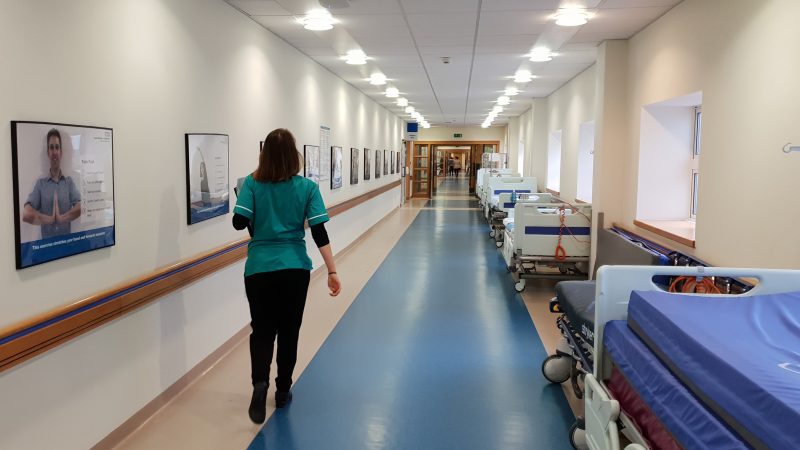
A recent LabourList comment piece by Professor Kamila Hawthorne, chair of the Royal College of GPs, described Labour health policy as being in evolution. This is an accurate description, as there is still no settled position on a number of key policy issues.
The following factors have dominated early Labour thinking:
- The focus must be on prevention and early intervention, meaning more community and primary care-based services
- This will require a substantial workforce increase paid for by changes in the non-dom tax status
- Access must be improved in secondary and primary care
- These improvements can only be delivered through substantial reform, and vested interests will not have a veto.
What is not clear is the level of resources that will be available in addition to the non-dom tax changes, what is meant by reform and what will be the role of the market and private sector.
Labour’s NHS reform plans have attracted considerable criticism
Labour has said the private sector will be used to reduce hospital waiting times that have built up due to years of austerity and Covid. However, there is little extra capacity in the private sector, and arguably, money should be directed to restore NHS capacity for the immediate and longer term, instead of more money being spent in the private sector.
Will the private sector have a continuing role, as Labour has not yet committed itself to reversing many of the pro-market elements of the 2012 Lansley Act and the 2022 Health and Care Act?
Wes Streeting became Shadow Health Secretary in 2021. Compared to the steady approach of his predecessor, Jon Ashworth, Streeting adopted the appearance of being in a hurry. This resulted in some statements being seen as poorly advised and unnecessarily confrontational.
In highlighting the need for improved primary care access, Streeting laid responsibility for the delays mainly at the door of GPs. In January 2023, he described the GP contractor status as a “murky opaque business”, and threatened to tear it up.
This provoked a fierce professional response. GP representatives such as Professor Hawthorne pointed out that GPs are operating at maximum capacity. Despite increases in patient numbers per GP and the complexity of their work, GP numbers had not risen for many years. No amount of contract reform will address this shortage.
This was followed by Labour proposing that patients with certain symptoms of serious disease should be allowed to by-pass their GP to make specialist appointments. This was regarded as a totally unworkable proposal, which would make massive hospital waiting lists even longer.
In making these calls for reform, Streeting indicated his willingness to tackle ‘vested interests’, which is widely understood to mean health trade unions. This further inflamed an already febrile situation. In recent months, Labour appears to have stepped back from some of these unwelcome proposals and has not repeated them. Streeting said Labour has “no intention of nationalising GPs”, suggesting he would not scrap independent contractor status. But suspicions and worries remain.
We are urging other unions to back a salaried GP option within the NHS
Many, mainly senior, GPs do value the independent contractor status. They run their practices as a small business, and they feel that it provides autonomy and allows freedom to organise their work, as well as providing a buttress against being incorporated into for-profit providers of general practice services.
The independent contractor model is proving less attractive to many new doctors. They are more interested in providing clinical services and not running a small business. Becoming a partner also involves buying into the practice, which may not be affordable to many and requires a longer-term, permanent commitment.
The BMA and the Royal College of General Practitioners (RCGP) have firmly declared themselves in favour of a continuation of the independent contractor status as the predominate model for general practice.
In 2022, Doctors in Unite published Primary Care and Public Health: A Vision for Revitalising General Practice. This radical document calls for a greater integration of primary care and public health to address the causes of ill health and health inequalities.
Central to this vision is the provision of a NHS salaried GP career pathway. This would allow GPs to become direct NHS employees with a contract that provides for professional autonomy, high professional standards and terms of service equivalent to other medical colleagues employed by the NHS such as hospital consultants and public health specialists.
Doctors in Unite do not call for the nationalisation of independent contractor GPs, but instead calls on the BMA and RCGP to support its campaign of a quality, public service, salaried GP career option.




More from LabourList
‘Labour is being badly misled on housing’
Reeves bets on patience over populism
‘Energy efficiency changes must work for older private renters’